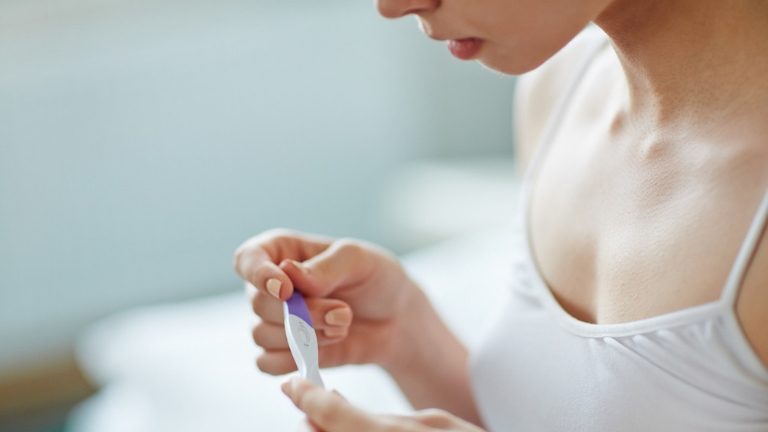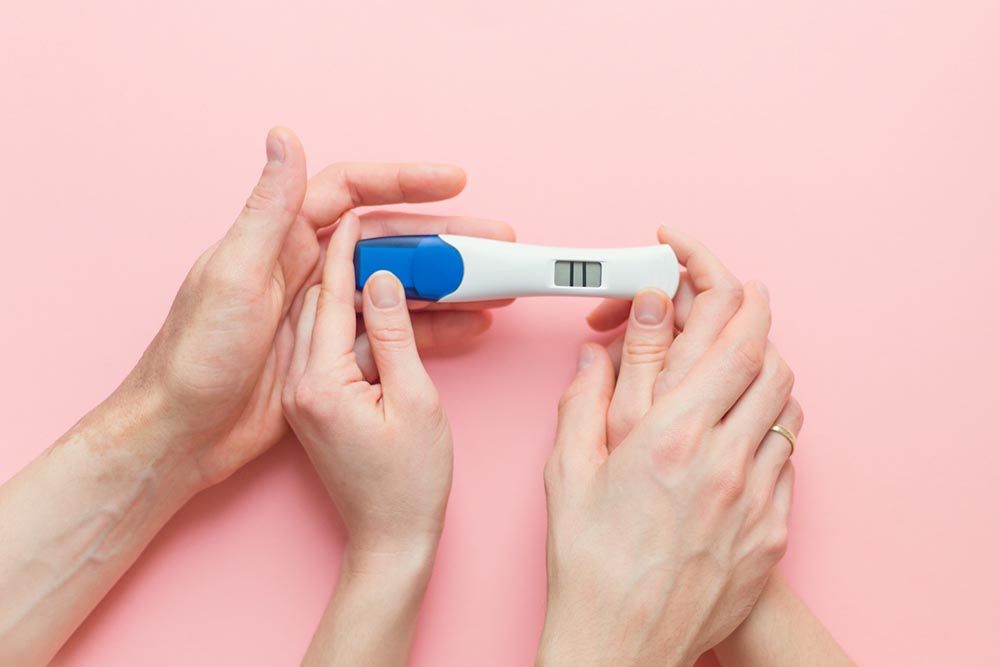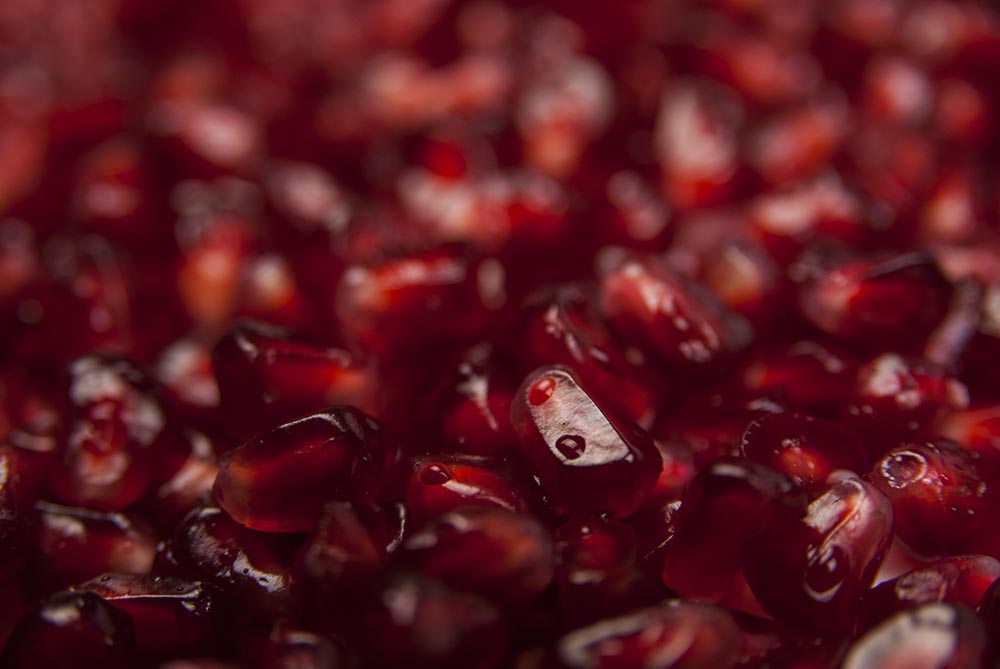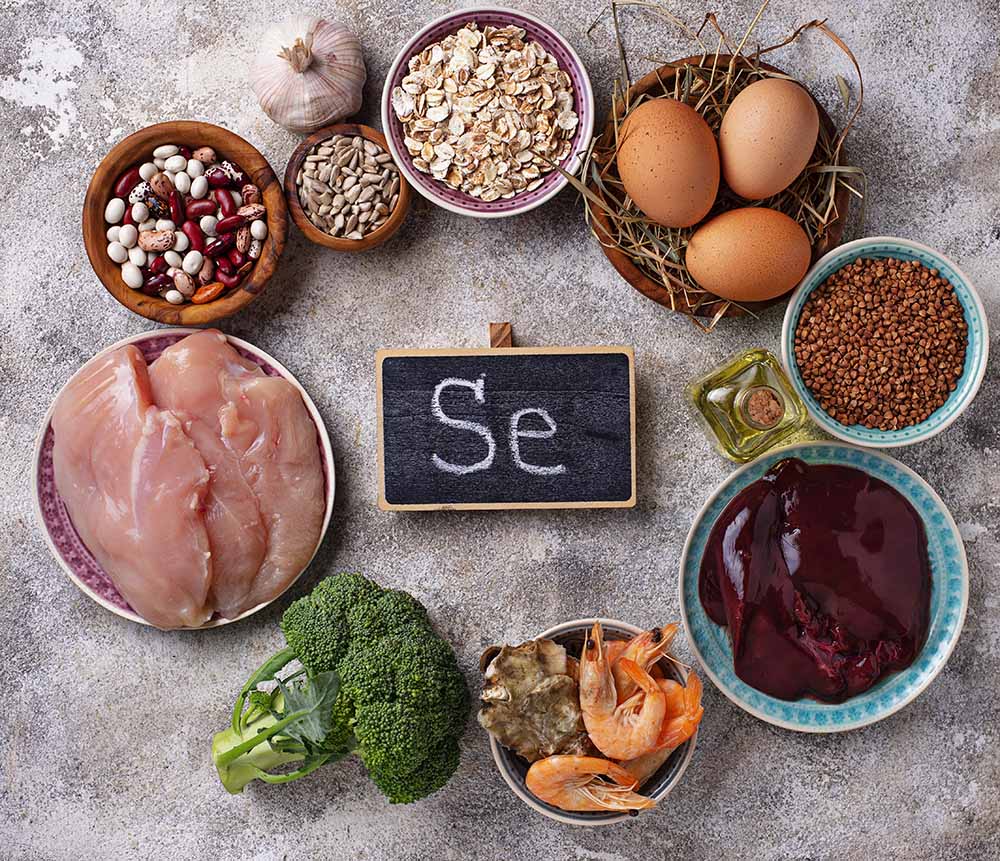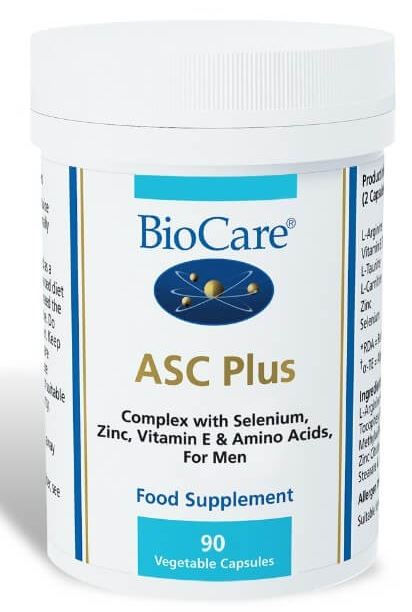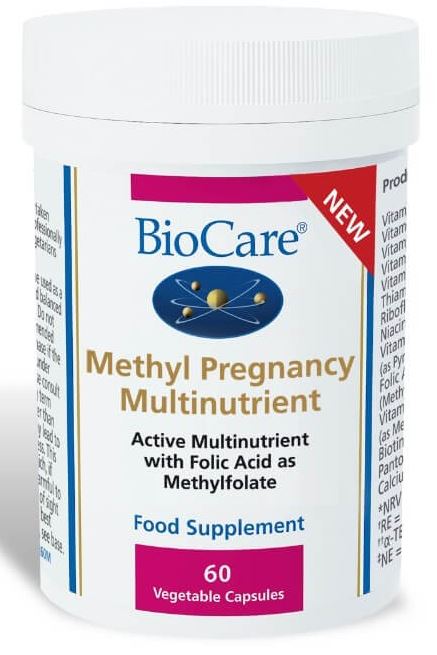Before you go down the costly IVF route, take a close look at your lifestyle as there are natural ways to increase fertility that work, says Nutritional Director Rick Hay
If you’re trying for a baby, it seems obvious that your health and lifestyle needs to be in tip top shape if you want to conceive and give birth to a healthy and happy baby.
Nutritional director Rick Hay explains that optimum nutrition is vital to healthy egg production and implantation in women, but a healthy lifestyle is also necessary for men too so that they have an abundance of healthy sperm.
After the age of 35, conceiving can become difficult
Unfortunately, as we get older, conception can become difficult. ‘After the age of 35, conceiving can become difficult due to declining sperm and egg quality,’ explains Hay.
Infertility is defined as an inability to conceive despite having regular unprotected sex for a period of a year, and around one in six couples may have difficulty conceiving – that’s approximately 3.5 million people in the UK.
This can be down to factors such as health, fitness, lifestyle habits or genetics. In terms of lifestyle and health there are a few things you can change to encourage your chances of conception and increase your fertility.
And it’s not just women who need to pay attention, men need to listen up too. Male infertility refers to the inability to achieve a pregnancy in a fertile female and accounts for 40 to 50 per cent of infertility cases – that’s a pretty high percentage.
Male infertility is generally the result of a decrease in the quantity, quality or motility of their sperm. This can be directly caused by genetic abnormalities but can also be related to conditions which can be treated and respond well to nutritional intervention and some lifestyle changes.
Just like with women, factors such as smoking, alcohol, obesity, poor diet, medications and general health and lifestyle can contribute to low testosterone levels in men, which impacts sperm quality and production. Plus, ageing in men too can also relate to a reduction in sperm quality and fertility.
Here are five natural ways you can increase your fertility.
#1 STOP smoking and limit alcohol
Hate to break it to you smokers but it really is this simple – you need to stop smoking if you want to increase your chances of getting pregnant.
‘Smoking can reduce fertility by up to a massive 40 per cent,’ explains Hay, and it can age you by ten years in fertility terms. Plus, smokers are three times more likely to take more than one year to get pregnant and enter the menopause on average three years sooner than non-smokers.
Cigarette smoke as well as alcohol can affect your hormone health, and can also lead to developmental problems with the baby when you finally do get pregnant. Both cigarette smoke and alcohol can also lower your libido.
For men, it can also lower and damage their sperm count, and for women it can damage the lining of the womb causing it to become thinner over time. Smoking for women can also disrupt ovarian function, that’s the release of your eggs (ovulation).
In fact, a 2015 study found that male smoking caused an increased risk of pregnancy loss (miscarriage), while female smoking caused an adverse effect on ovarian reserve.

Unfortunately alcohol in excess can create havoc on the delicate female hormone system. The liver is the main organ in the body responsible for processing toxins. So if the liver is preoccupied or overburdened with the processing of alcohol or cigarette toxins, then it can’t do its other major job which is to clean up any substances or hormones made in the body that need to be cleansed and deactivated.
If these toxins aren’t cleared by the liver then they will start to have harmful side effects on your fertility. This build up of toxins can also lead to excess oestrogen in the body and lowered levels of progesterone, ‘the combination of which is not conducive to fertility,’ explains Hay.
Of course we aren’t saying you should give up alcohol like we’re saying to quit smoking, but if you are struggling to get pregnant, then the NHS do advise that you try to minimise alcohol as much as you can or ideally give it up. A glass or two of wine a couple of days a week though, is unlikely to cause any harm.
Male sperm can be particularly affected by the amount of alcohol consumed. This is because alcohol disrupts blood glucose levels and excess circulating glucose both damages sperm cells and destroys a vital B vitamin called folate. For men, it is advised that they should drink no more than two to three units a week.
#2 Keep an eye on your body fat
Another lifestyle change that should be addressed is your body fat percentage and overall weight. In fact, your body weight and fat at either extreme can disrupt your fertility.
For women who have a body fat percentage that is too low, can see symptoms such as amenorrhea (the absence of menstruation, one or more missed menstrual periods in a row) and irregular menstrual cycles, infertility is often the result.
High body fat on the other hand, is associated with lower SHBG (sex hormone-binding globulin), which is a protein that is produced by the liver. This lack of SHBG, can lead to an excess of the hormone oestrogen, which can cause weight gain, fatigue, depression, bloating, insomnia and brain fog.
a body fat percentage that is too low, can see symptoms such as amenorrhea – the absence of menstruation
To find a happy weight medium, make sure you keep your weight stable. This can be done by eating organic wholesome foods, seasonal fruit and vegetables and by avoiding too much sugar.
Try and eat food in its cleanest most nutritious state possible, which means buying organic where you can and not over-processing or over-cooking the ingredients. Eat a predominantly plant based diet of seasonal and colourful fruit and vegetables (remember, the brighter the skin, the better the antioxidant value).
This doesn’t mean depriving or starving yourself of all your favourite foods though. You can still have your favourites, but try where you can to create healthier versions that taste just as good.
Be aware also that some dairy and meat products may contain hormone additives, so choosing organic dairy and meat may reduce your exposure to excess oestrogen, and the not so nice symptoms that go with it.
Also, try and add some phytoestrogenic foods to your diet, these will counteract the effects of excess estrogen. Phytoestrogens are compounds that naturally occur in plants and can be found in foods such as pomegranate, flaxseeds, pears, apples, berries, organic non-GMO fermented soy, wheat germ, oats, and barley.
Pomegranates in particular are rich in many nutrients including vitamin C, vitamin K, folic acid and several other vitamins and minerals. They are known to have anti-ageing properties, anti-cancer properties, are great for cardiovascular health, bone health and for helping with fertility.
In ancient Persia, pomegranates were seen as a symbol of fertility and this still exists today in some countries. In fact, research shows that drinking pomegranate juice during pregnancy may prevent brain damage in babies.
Another way to sustain your body weight and fat is – you guessed it – incorporating regular exercise into your daily routine. Take the stairs rather than an elevator, go for an evening walk or take a walk during your lunch break. Do anything you can to keep your weight at a healthy level to increase your chances of fertility.
#3 Find a way to manage your stress
Stress reduction and keeping your caffeine intake to a minimum or avoiding it altogether is something you may want to start thinking about if you are wanting to get pregnant.
Though there is no direct association between stress and impaired fertility there is a huge amount of evidence showing that too much stress activates the sympathetic fight or flight response in the nervous system, which can lead to raised levels of the stress hormone cortisol.
‘The hormones cortisol and insulin have to be functioning correctly to avoid interfering with reproductive hormones,’ explains Hay.
These stress hormones can start to create an imbalance in your fertility hormones which can affect the organs in your body. This can lead to high blood pressure, problems with sleep and lowered libido.
High stress levels can also lead us to make unhealthy lifestyle choices to help us cope, such as eating too much sugar, drinking alcohol or caffeine or smoking – which are all big no-no’s if looking to improve your fertility.
Meditation, yoga, mindfulness, being outdoors in nature, having a bath or spending time with close friends can all help to alleviate and manage your stress levels.
Science is beginning to look at the impact of stress on fertility and early studies show the likelihood of how natural conception is reduced when stress levels are high.
A recent American study of 501 couples over 12 months, found a 29 per cent reduction in infertility and an increase in the risk of infertility in couples demonstrating high levels of stress.
Research has also shown that patients who become overwhelmed by their infertility tend to be less happy, engage less socially and have reduced libidos. The longer it takes couples to conceive the higher their levels of stress – so try not to obsess over your fertility, it will only stress you out even more and cause a vicious cycle.
#4 Your environment could be affecting your fertility too
Now this is something we don’t often think about, but it turns out there are things in our environment that can affect our fertility without us even realising.
As mentioned, it is best to choose organic and seasonal foods. This way you’ll know the produce is far less likely to have been influenced by hormones, pesticides, added preservatives, chemicals and additives that are rich in sugar.
We know that pesticides are used on many farms to help produce volume and uniform goods and we know that while buying organic food is an option, it’s not one that may suit every budget.
A useful tool, is to look at the Clean 15 (foods which contain fewer pesticides) and The Dirty Dozen, (foods you should try to buy organic). There is a US version, but also a useful UK version here.
Another sneaky environmental factor to look out for is heat radiation, especially for the men – do you ever sit with your laptop on your lap? And do you keep your phone in your pocket? You probably answered yes to all of these questions right?
Well the heat radiation from mobile phones and laptops can be bad news for your sperm thanks to emissions of radiation from mobile phones and laptops we need to keep our electronics away from our bits.
Research demonstrates that heat impacts semen quality so it is important to keep the testicles cool. This is why nature has designed them to hang in sacks outside of the body so they keep cool.
Using laptops directly on the lap, becoming over heated through excessive exercise, sauna use as well as external heat sources such as ovens, hot baths and car seats can all cause problems to sperm quality.
As an example of a ‘hot environment’ male chefs have a high incidence of infertility since their testicles are exposed to constant heat sources from ovens and stoves.
Plus, for all those bike enthusiasts, tight underwear and prolonged periods spent cycling may also cause problems with sperm – sorry.
#5 Supplement with selenium and zinc
If you feel like you have all of the above covered and you are still having fertility troubles, maybe it’s time to try a natural supplement?
‘Ideally for fertility help, you need to look for a supplement that includes both selenium and zinc,’ suggests Hay. These minerals are important for both men and women and are essential for fertility because they help with embryo development and sperm health.
Plus for overall health reasons, both zinc and selenium contribute to the normal function of the immune system.
But according to the World Health Organisation (WHO) it has been estimated that 17 percent of the global population is vulnerable to zinc deficiency in their diet – bad news where fertility is concerned.
For men, zinc contributes to the maintenance of normal testosterone levels in the blood. Men need to produce between 40 and 300 milllion sperm cells to be considered fertile.
Increasing their zinc levels has been shown to improve the structure and function of male sperm, while also enhancing the mobility, motility and strength needed to make the long journey through the female for fertilisation to take place.
And for women? Zinc is also an essential fertility nutrient. ‘Zinc can help with normal fertility and reproduction by keeping a healthy balance in the hormones, oestrogen and progesterone to provide good egg cell health,’ explains Hay.
As well as supplements, zinc can be found in seafood, lamb, beef, nuts, pumpkin seeds and chick peas.
Selenium too is another fertility healthy mineral. It has an important role to help protect our bodies from free radicals and prevents damage to the chromosomes which can lead to difficulties in conception, birth defects or miscarriage.
A deficiency of selenium in men can cause a deterioration in the quality of semen and in sperm motility. Therefore male fertility can benefit from a selenium supplement by aiding the quality of sperm as well as the production and the formation of sperm.
Selenium is also key for female fertility as selenium deficiencies in women can lead to gestational complications, miscarriages and the damaging of the nervous and immune systems of the fetus.
That it why supplementation in the case of selenium deficiencies and aiding fertility in both males and females is advised,’ says Hay.
Studies have shown that a low concentration of selenium in blood serum in the early stage of pregnancy can be a predictor of low birth weight of a newborn.
Studies have also been done on selenium taken with vitamin E. ‘Vitamin E may enhance fertility by decreasing free-radical damage to sperm cells,’ says Hay.
Vitamin E can provide a healthier production of sperm with better motility and vitality to give more likelihood of implantation.
For women this vitamin can also provide a longer luteal (fertile) phase and improve chances of conception with better overall egg health.
The EU nutrient reference value for vitamin E is 12mg / 18IU daily. Apart from supplements, vitamin E can be found in nuts, seeds, kale and olive oil.
One study found that after 14 weeks of treatment in 690 cases, sperm motility increased significantly after selenium-vitamin E treatment compared with that before the treatment period.
BioCare’s ASC Plus for men contains a combination of useful key nutrients for men including, the amino acids, L-arginine, L-carnitine (see below), together with zinc, selenium and vitamin E.
As well as supplements, selenium can be found in Brazil nuts, sardines, tuna as well as green leafy vegetables.
#6 Try amino acids if you’re a man
This one is for the men, or more specifically their sperm. ‘The amino acids L-arginine and L-carnitine play a key role in sperm production and protection,’ says Hay.
In fact, 61 adult males were selected and categorized as fertile and infertile on the basis of history and semen analysis, this was to test the hypothesis that L-camitine helps in maintaining normal fertility. The study results suggested that L-carnitine plays an essential role in maintaining male fertility.
Additionally, a 2017 animal study on 20 boars showed that L-arginine improved sperm motility, normality, total sperm number and effective total sperm number. It also improved libido performance.
Dietary L-arginine and L-carnitine can be found in pumpkin seeds, turkey, peanuts, red meat, beans and avocado.
#7 Take folic acid
It is well known that at least 400mcg of folic acid is recommended by the medical profession worldwide when trying to conceive and during pregnancy, as it can help prevent birth defects known as neural tube defects, including spina bifida.
‘Taking a supplement containing 400mcg of folic acid (folate) is Government recommended prior to and during early pregnancy,’ advises Hay. Folic acid contributes to normal maternal tissue growth.
Folic acid is available as a single supplement in pill form, but it is also included in most multivitamins – although quantities should be closely checked. Hay recommends BioCare’s Methyl Pregnancy Multi Nutrient for women.
5-MTHF (Methylfolate) is the natural form of folate and can be found in foods such as leafy green vegetables and is already active and ready for the body to use.
More Healthista Content:
Why does sex hurt? Dyspareunia explained
My boyfriend doesn’t satisfy me sexually – therapy
Periods and exercise – How to sync your workout to your menstrual cycle2019
Are eggs healthy? Sorting the fact from fiction
Like this article? Sign up to our newsletter to get more articles like this delivered straight to your inbox.



